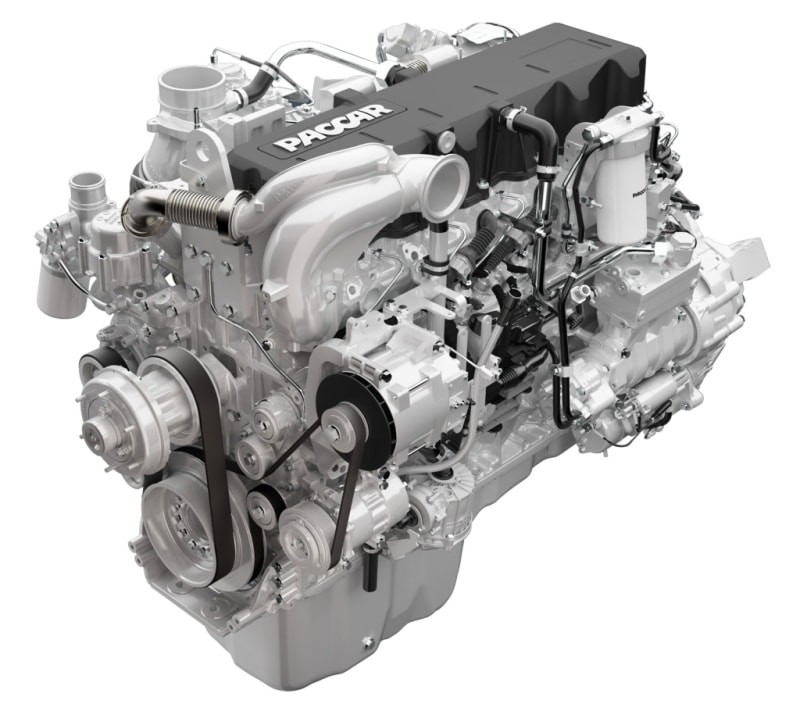Truck manufacturer PACCAR announced today it is gearing up to provide a new engine for its line of Kenworth and Peterbilt trucks later this year. Dubbed MX, the new power unit will be available with power outputs ranging from 380hp to 485hp and torque outputs reaching as much as 1,750 lb-ft.
The PACCAR MX engine uses Selective Catalytic Reduction (SCR) in combination with exhaust gas recirculation (EGR) to meet the EPA 2010 diesel engine emissions regulations. It was built, PACCAR says, to provide excellent fuel efficiency, high reliability, durability, lightweight design and low cost of ownership.
“The PACCAR MX engine generates up to 485hp with excellent performance across a wide range of engine speeds. In addition to performance excellence, PACCAR pioneered the design and manufacture of high-strength compacted graphite iron (CGI) used in the MX engine block and cylinder head," Craig Brewster, PACCAR assistant vice president said in a release.
"This premium material is more durable and lighter than conventional grey iron resulting in superior power-to-weight performance."
The MX has already managed to secure its share of awards, as it already received the “Best Engine of the Year Award” at the Bus World Asia Exhibition in Shanghai, China.
“PACCAR’s 50 years of engine development and manufacturing expertise have established the company as one of the leading diesel engine manufacturers in the world,” said Jim Cardillo, PACCAR president.
“Over 125,000 PACCAR MX engines are successfully operating in DAF trucks globally.”
The PACCAR MX engine uses Selective Catalytic Reduction (SCR) in combination with exhaust gas recirculation (EGR) to meet the EPA 2010 diesel engine emissions regulations. It was built, PACCAR says, to provide excellent fuel efficiency, high reliability, durability, lightweight design and low cost of ownership.
“The PACCAR MX engine generates up to 485hp with excellent performance across a wide range of engine speeds. In addition to performance excellence, PACCAR pioneered the design and manufacture of high-strength compacted graphite iron (CGI) used in the MX engine block and cylinder head," Craig Brewster, PACCAR assistant vice president said in a release.
"This premium material is more durable and lighter than conventional grey iron resulting in superior power-to-weight performance."
The MX has already managed to secure its share of awards, as it already received the “Best Engine of the Year Award” at the Bus World Asia Exhibition in Shanghai, China.
“PACCAR’s 50 years of engine development and manufacturing expertise have established the company as one of the leading diesel engine manufacturers in the world,” said Jim Cardillo, PACCAR president.
“Over 125,000 PACCAR MX engines are successfully operating in DAF trucks globally.”

